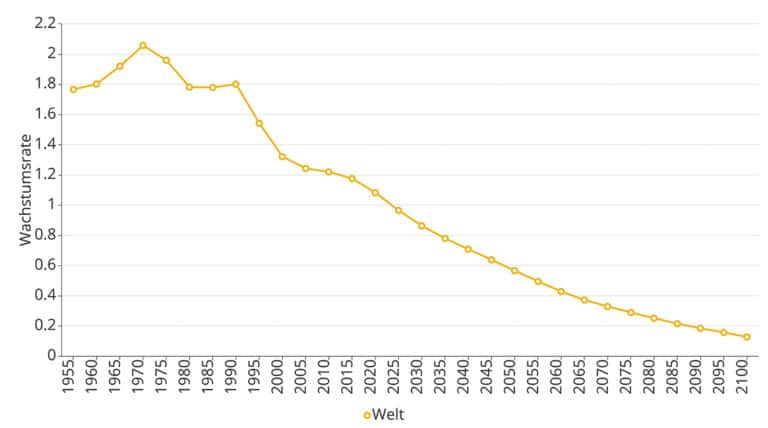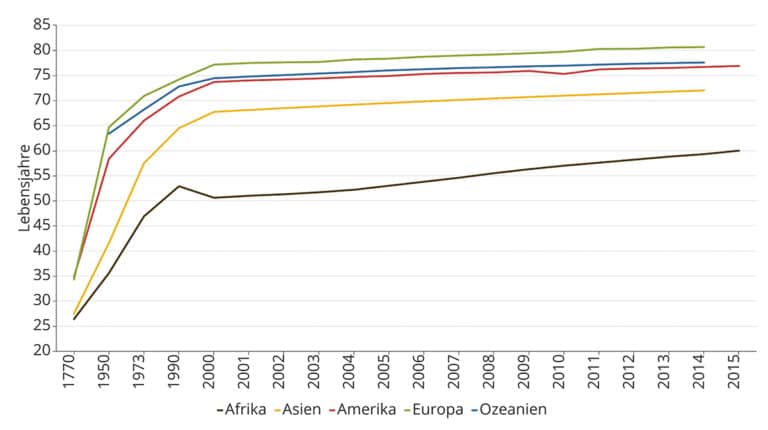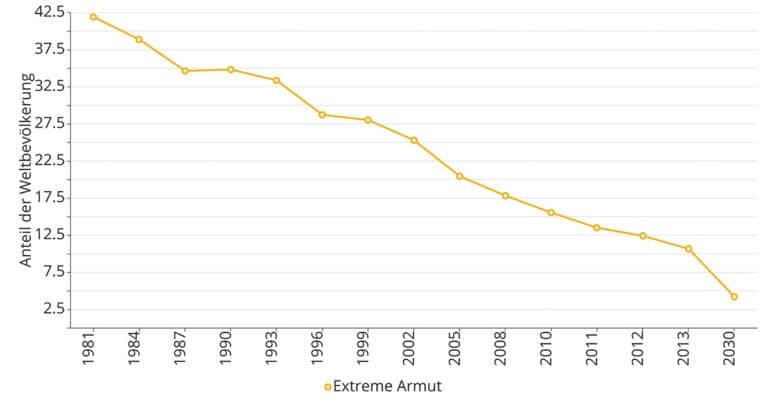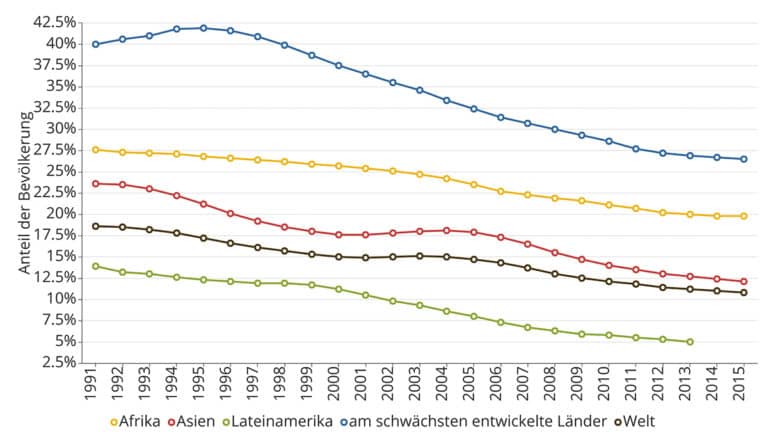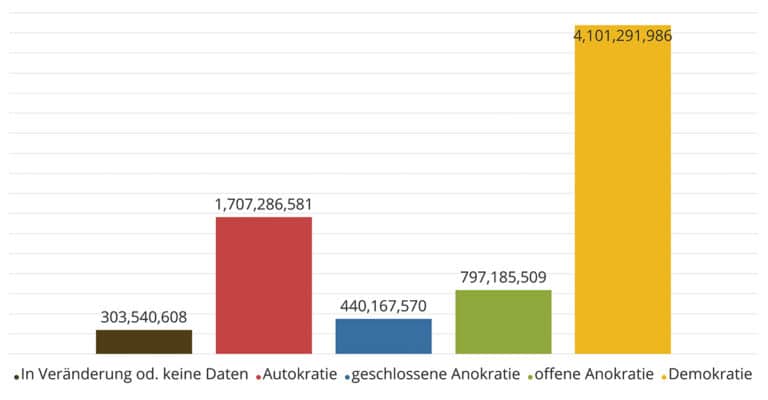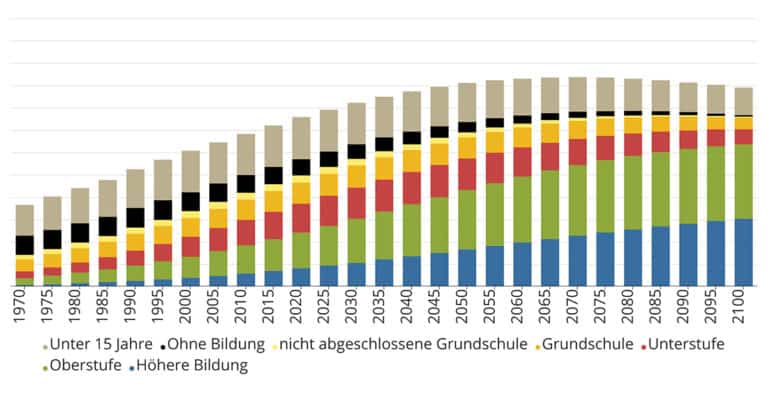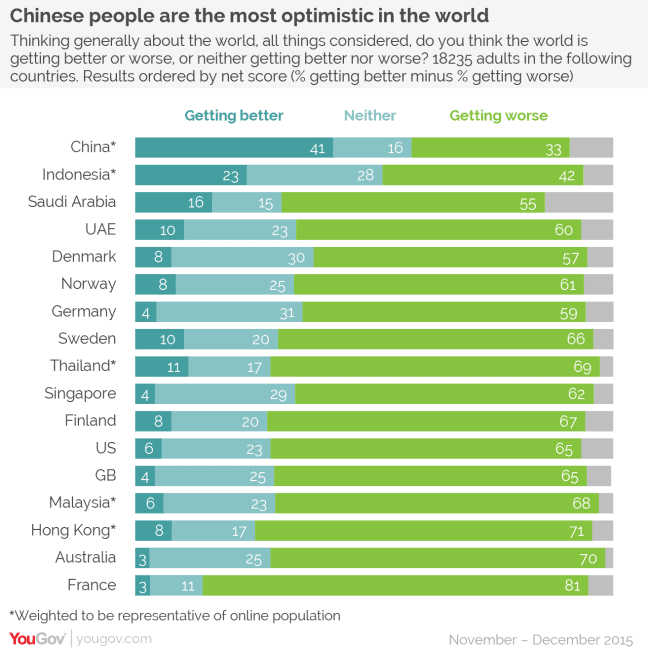Climate change, famine, extreme poverty, corruption, Donald Trump. - The list of global problems is long. And there is nothing to gloss over. But despite all pessimistic tongues, the end of the world is not imminent. On the contrary, the (most) facts prove that global development is absolutely positive. Never before has it been so livable on our planet - at least since humans live on it.
By the way: The happiest country is Norway, found the UN initiative Sustainable Development Solutions Network in its World Happiness Report. Head Jeffrey Sachs recently told India Today that the results can be explained by the fact that "happy countries are those who have a healthy balance of wealth and social capital, a high level of trust in a society, low inequality and confidence in the government. "Sounds very much like positive thinking, right?
Photo / Video: Shutterstock.
#1 GROWTH OF POPULATION
In recent centuries, the world's population has risen dramatically to more than seven billion people. Between 1900 and 2000, the increase was three times higher than in all of human history before - an increase of 1,5 to 6,1 billion people in just 100 years. But even here there are positive developments to note. Thus, the annual growth rate (graph) of 2,1 percent has already fallen to 1,2 percent (2015). The forecasts speak of a significant drop to 0,1 percent until the year 2100. For the last half century, we live in a world where population growth is declining. Even so, the global population, even though it is weaker, will see its 2100 billion population shrinking, after which the world's population is likely to decline.
#2 LIFE EXPECTANCY
Life expectancy has increased rapidly since the Enlightenment. In the early 19. In the 19th century it began to increase in industrialized countries, while remaining low in the rest of the world. In recent decades, global inequality has declined. Since the year 1900, the global average life expectancy (graphics) has more than doubled and now stands at around 70 years.
A health indicator is life expectancy by age. 1845 still had significant differences: life expectancy for newborns was 40 years and 70 year olds 79 years. Today, this range is much smaller - from 81 to 86. This is because the chance of dying at a younger age has steadily declined. The "equality of life" has increased for all people.
#3 EXTREME POVERTY
In 1820, there were nearly 1,1 billion people in the world, of whom more than 1 billion lived in extreme poverty (under 1.90 dollars a day). Since about 1970, we live in a world where the number of non-poor people is increasing, while the number of poor people is falling significantly. 1970 2,2 billion people lived in extreme poverty, 2015 it was still 705 million, about eight percent of the world's population. UN forecasts show a further drop to around four percent in the year 2030.
#4 WORLD HUNGER
The United Nations "Hunger Indicator" measures the proportion of the population that consumes an insufficient amount of calories, which would be necessary for the energy needed for an active and healthy life. There are only a few data from before 1990. But even here, there is a tendency to see significant progress. According to the latest data from Welthunderhilfe, 795 million people (2015) worldwide are affected by hunger.
#5 DISSEMINATION DEMOCRACY
In the last 200 years, there has been a slow rise in democracies, many returning to autocracy before the Second World War. From 1945 the number grew again, until it nearly doubled between 1989 and 1992 and reached the highest level of 2009 democracies starting from 89. The graph shows the population share according to the respective political system. Critical opinions assume that only 12,5 percent of the world's population live in a complete democracy.
#6 GLOBAL EDUCATION
There has been tremendous progress in the area of education: Were 1800 still 88 percent illiterate, this number 2014 has fallen to 15 percent. However, there are still countries at around the 30 percent with Nigeria, for example. The education level has risen sharply: the graph shows the respective highest school type according to absolute numbers (the wave also shows the development of the world population) including the IIASA forecast until the year 2100.
#7 The crime does NOT increase!
#8 And yet most think the world is getting worse ....
This post was created by the Option Community. Join in and post your message!



